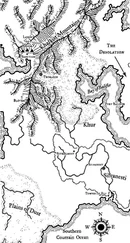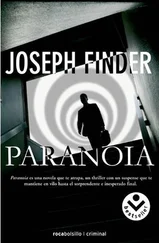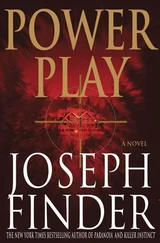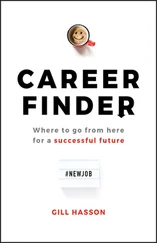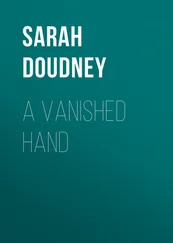“What does one of these cost?”
“Why? You thinking of going into the business?”
“Everyone has a dream.”
He looked at me. It took him a few seconds to get that I was being sarcastic. “You can get one of these babies for three hundred thousand bucks. There’s hundreds of them sitting in airplane boneyards in the desert. Like used-car lots.”
I walked to the front of the plane. Mounted to the doorframe was the data plate, a small stainless-steel square the size of a cigarette pack. Every plane has one. They’re riveted on by the manufacturer, and they’re sort of like birth certificates. This one said THE BOEING COMPANY-COMMERCIAL AIRPLANE DIVISION-RENTON, WASHINGTON, and it listed the year of manufacture (1974) and a bunch of other numbers: the model and the serial number and so on.
I pulled out a little Maglite and looked closer and saw just what I expected to see.
I stepped back out onto the air stairs, the cold rain spritzing my face, and I reached out and felt the slick painted fuselage. I ran my hand over the Argon Express logo, felt something. A ridge. The paint seemed unusually thick.
Woody was watching me from a few feet away. My fingers located the lower left corner of the two-foot-tall letter A.
“You don’t paint your logo on?” I asked.
“Of course it’s painted on. What the hell-?”
It peeled right up. I tugged some more, and the entire logo-some kind of adhesive vinyl sticker-began to lift off.
“Check out the data plate,” I said. “It doesn’t match the tail number.”
“That’s-that’s impossible!”
“They didn’t just steal the cargo, Woody. They stole the whole plane.”
WASHINGTON
I think I saw her eyelids move.”
A woman’s voice, distant and echoing, which worked itself into the fevered illogic of a dream.
Everything deep orange, the color of sunset. Murmured voices; a steady high-pitched beep.
Her eyelids wouldn’t open. It felt as if her eyelashes had been glued together.
Against the blood orange sky, stars rushed at her. She was falling headlong through a sky crowded with stars. They dazzled and clotted into odd-shaped white clouds, and then the light became harsh and far too strong and needles of pain jabbed the backs of her eyeballs.
Her eyelashes came unstuck and fluttered like a bird’s wings.
More high-pitched electronic beeps. Not regular anymore, but jumbled, a cacophony.
A man’s voice: “Let’s check an ionized calcium.”
A clattering of something-dishes? Footsteps receding.
The man again: “Nurse, did that gas come back?”
The husky voice of another woman: “Janet, can you page Yurovsky now, please?”
Lauren said, “You don’t have to shout.”
“She made a sound. Janet, would you please page Yurovsky now?”
She tried again to speak, but then gave up the effort, let her eyelids close, the lashes gumming back together. The needles receded. She became aware of another kind of pain, deep and throbbing, at the back of her head. It pulsed in time to her heartbeat, rhythmically sending jagged waves of pain to a little spot just behind her forehead and above her eyes.
“Ms. Heller,” said the man, “if you can hear me, say something, will you?”
“What do you want, I’m shouting!” Lauren said at the top of her voice.
“Now I see it,” one of the female voices said. “Like she’s trying to talk. I don’t know what she said.”
“I think she said ‘Ow.’ ”
“The doctor’s on rounds right now,” one of the women said.
“I don’t care what he’s doing.” The husky-voiced woman. “I don’t care if he’s in the medical supply closet screwing a nurse. If you don’t page him right this second, I will.”
Lauren smiled, or at least she thought she did.
SHE FELT a hard pinch on her neck.
“Hey!” she protested.
Her eyelids flew open. The light was unbearably bright, just as painful, but everything was gauzy and indistinct, like there was a white scrim over everything. She wondered whether she’d fallen back asleep for several hours.
A hulking silhouette loomed, came close, then pulled back.
A male voice: “Well, she’s responding to painful stimuli.”
Yeah, I’ll show you a painful stimulus, Lauren thought but couldn’t say.
Actually, two silhouettes, she realized. She couldn’t focus, though. Everything was strangely hazy, like every time you saw Lucille Ball in that dreadful movie version of Mame. Lauren had played the snooty Gloria Upson in the Charlottesville High School production of Auntie Mame, and she’d seen the Rosalind Russell movie countless times, but couldn’t stand the Lucy one.
“Mrs. Heller, I’m Dr. Yurovsky. Can you hear me?”
Lauren considered replying, then decided not to bother. Too much effort. The words weren’t coming out the way she wanted.
“Mrs. Heller, if you can hear me, I’d like you to wiggle your right thumb.”
That she definitely didn’t feel like doing. She blinked a few times, which cleared her vision a little.
Finally, she was able to see a man with a tall forehead and long chin, elongated like the man in the moon. Or like a horse. The face came slowly into focus, as if someone were turning a knob. A hooked nose, receding hair. His face was tipped in toward hers. He wore a look of intent concern.
She wiggled her right thumb.
“Mrs. Heller, do you know where you are?”
She tried to swallow, but her tongue was a big woolen sock. No saliva. My breath must reek, she thought.
“I’m guessing it’s a hospital.” Her voice was croaky.
She looked up. A white dropped ceiling with a rust stain on one of the panels, which didn’t inspire confidence. Blue privacy curtains hung from a U-shaped rail. She wasn’t in a private room. Some kind of larger unit, with a lot of beds: an ICU, maybe. A bag of clear liquid sagged on a metal stand, connected by a tube to her arm.
An immense bouquet of white lilies in a glass florist’s vase on the narrow table next to her bed. She craned her neck just enough to see that they were calla lilies, her favorites. A lightning bolt of pain shot through her eyes. She groaned as she smiled.
“From Roger?”
A long pause. Someone whispered something. “From your boss.”
Leland, she thought, smiling inwardly. That’s just like him. She wondered who had ordered the flowers for him.
And how he knew what had happened to her.
She adjusted the thin blanket. “My head hurts,” she said. She felt something lumpy under the blanket, on top of her belly. Pulled it out. A child’s Beanie Baby: a yellow giraffe with orange spots and ugly Day-Glo green feet. It was tattered and soiled. Tears welled in her eyes.
“Your son dropped that off this morning,” a woman said in a soft, sweet voice.
She turned. A nurse. She thought: This morning? That meant it wasn’t morning anymore. She was confused; she’d lost all track of time.
Gabe’s beloved Jaffee-as a toddler, he couldn’t say “Giraffiti,” the name printed on the label. Actually, neither could she. Too cute by half.
“Where is he?”
“Your son is fine, Mrs. Heller.”
“Where is he?”
“I’m sure he’s at home in bed. It’s late.”
“What-time is it?”
“It’s two in the morning.”
She tried to look at the nurse, but turning her head escalated the pain to a level nearly unendurable. How long had she been out? She remembered glancing at her watch just before they got back to the car, seeing 10:28. Almost ten thirty at night on Friday. The attack came not long after that. She tried to do the math. Four hours? Less: three and a half?
Читать дальше




